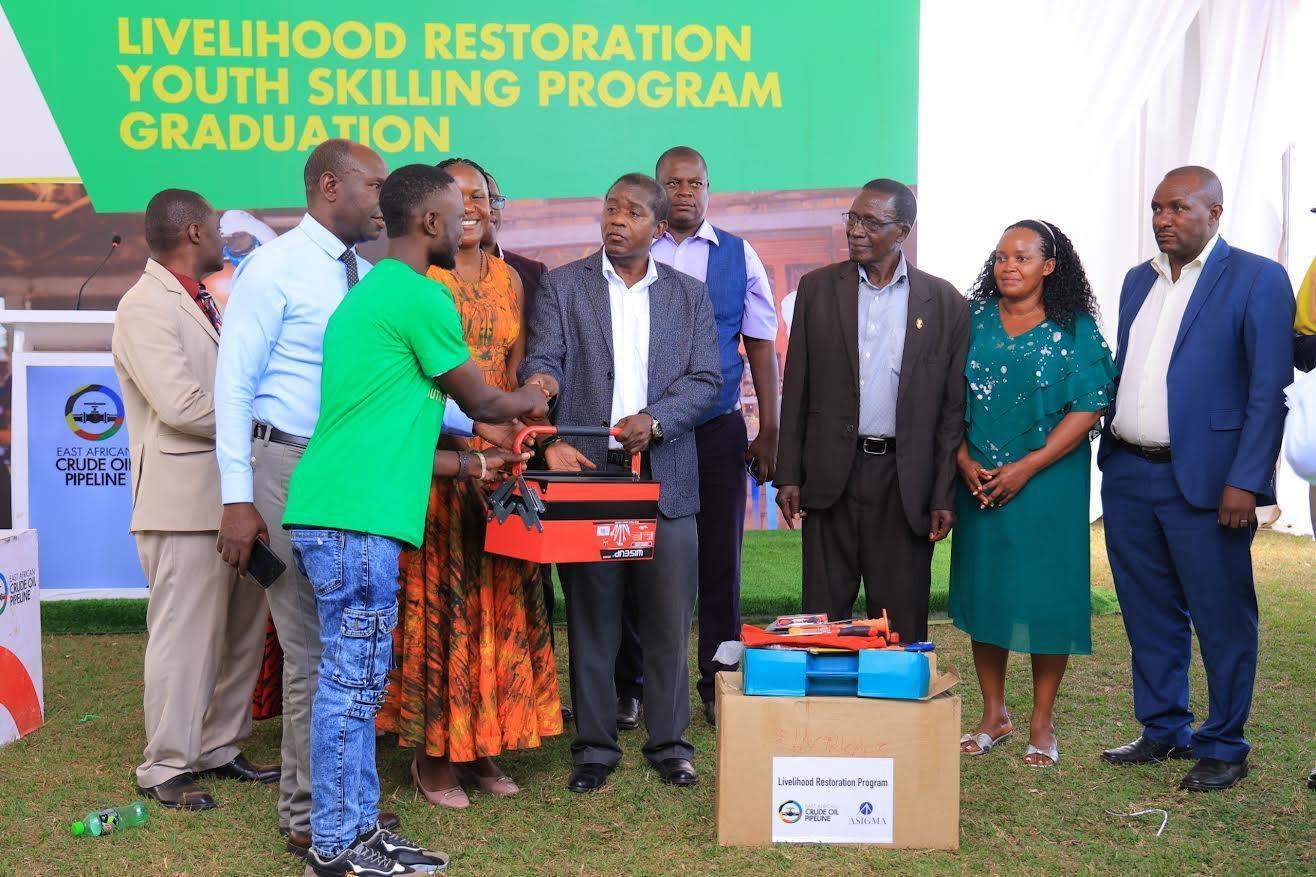Africa-Press – Uganda. The East African Crude Oil Pipeline (EACOP) Ltd has successfully facilitated vocational skills training for youth from project-affected households, under its Resettlement Action Plan (RAP).
The initiative aims to strengthen the capacity of affected households to generate income and build resilience through self-employment or paid employment after displacement.
A total of 456 youth, including 217 female students, from Gomba, Kyotera, Lwengo, Rakai, and Sembabule districts were enrolled at Mummy’s Institute of Beauty and Commercial Studies, St. Charles Lwanga Technical Institute Butende, and Masaka Vocational Training Institute.
They completed three months of vocational training followed by a one-month internship. This brings the total number of youth trained along the pipeline route to 1,476.
“We are greatly honored to empower youth from project-affected households with vocational skills. Equipping them with the right skills will enhance their capacity to start their own enterprises and engage in productive activities that improve household incomes,” said EACOP Social Performance Manager, Rosie Birungi.
The youth received training in Motor Vehicle Mechanics, Welding & Metal Fabrication, Motorcycle Mechanics, Electrical Installation, Hairdressing, Plumbing, Carpentry, Cosmetology, and Building & Construction. Each graduate will receive a starter kit tailored to their vocational field to begin their journey into employment.
Support through EACOP contractor ASIGMA Ltd included tuition, scholastic materials, and welfare during the training period. This initiative is part of EACOP’s livelihood restoration program, designed to restore, transition, and improve the livelihoods of affected households by leveraging available resources post-resettlement.
According to World Bank data, over 75% of Uganda’s population is under the age of 30. However, youth unemployment remains a significant challenge, with the Uganda Bureau of Statistics’ National Labour Force Survey 2021 recording a 17% youth unemployment rate—higher than the national average of 11.7%, as reported by the Ministry of Labour and National Development.
“Our greatest joy lies in making a difference in these young lives by equipping them with valuable skills that can transform their future. We are confident they will become role models for others, sharing the knowledge they have gained. We encourage them to remain resilient and professional as they embark on this new journey,” EACOP’s Birungi added.
For More News And Analysis About Uganda Follow Africa-Press






